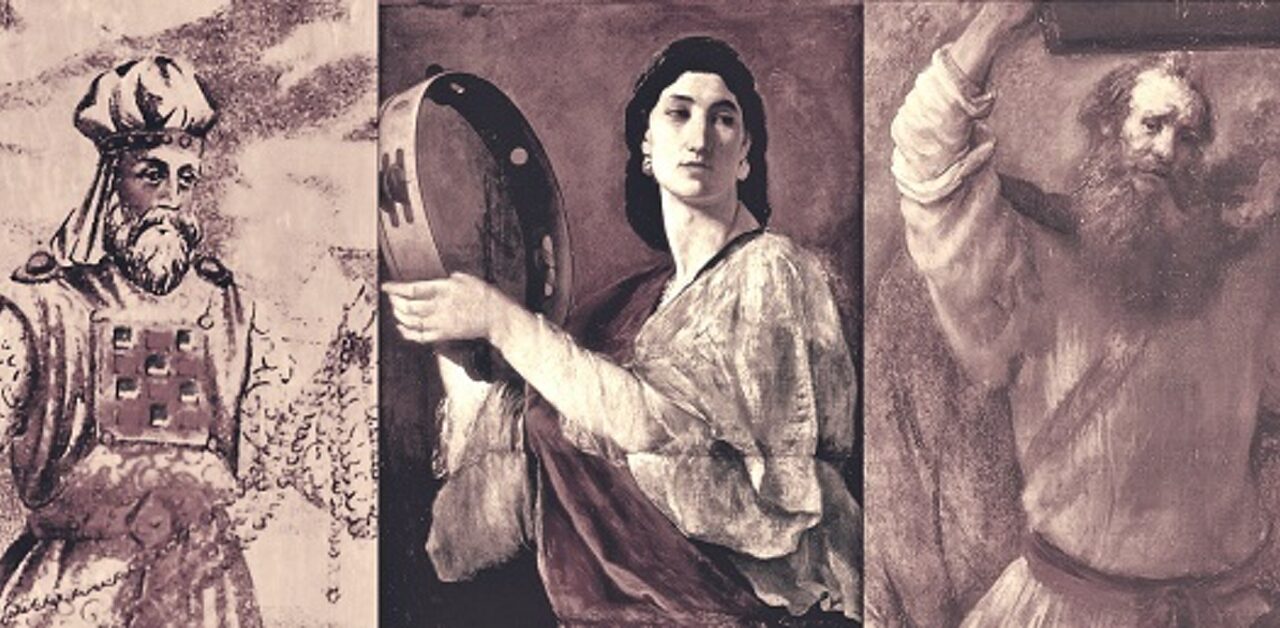Pastors, may we be quick to forgive and seek the best for those who question our God-given, Scripture-driven, authority.
Imagine having the unique privilege of speaking face to face with the Lord as a man speaks to his friend: candidly, openly. Okay, we can imagine that: the veil has been opened through our High Priest’s perfect sacrifice of Himself. What a privilege we have to go boldly before His throne!
Sure, in Exodus 33 Moses couldn’t and didn’t see the person of God Himself – no one can do this and live (Ex. 33:20), and God is spirit. The point being made in Exodus 33 and Numbers 12, however, is intimacy. Moses’ fellowship with God was amazing. Moses, unlike the rest of Israel, didn’t need a mediator in order to worship and bring requests to God. He was…well, different – one in about two million.
[bctt tweet=”There are no spiritual giants – only a glorious God who uses the weak things to shame the strong. This is, of course, something Christendom oft forgets.” username=”ThingsAboveBlog”]
Talk about a minority. As God’s chosen representative, He had truly special access.
Moses even had the candor to ask God for the ability to see His glory, though it was veiled in the cleft of the rock and only His “back” was exposed. But imagine being chosen, along with the aid of Aaron, to especially go to the people of Israel on behalf of God, and go to God on behalf of the people. What a terror! What joy! What a massive responsibility.
Lest we get too hero-worshippy, we should remember that Moses was a member of Adam’s race too, and the Messiah would one day bear the weight of his massive sin debt. No amount of “meekness” or service was going to pay for that. His only hope was God’s salvation through the work of Eve’s seed – just like ours. Moses, like you and I, could only produce good if God worked through Him by faith. There are no spiritual giants — only a glorious God who uses the weak things to shame the strong. This is, of course, something Christendom oft forgets.
But back to our topic at hand. Numbers 12 describes a typical yet awful situation: Israel’s unfaithfulness on the heels of chapter 11 in which God sends ridiculous amounts of quail. He did this in response to Israel’s manna-induced complaints. They wanted something different, better. They had manna, now they wanted meat. They got meat, now some wanted something else. God, in response, sends a plague.
While the meat was yet between their teeth, before it was consumed, the anger of the Lord was kindled against the people, and the Lord struck down the people with a very great plague (Num. 12:33).
That’s not all. As we enter chapter twelve, we read that two of Israel’s most, shall we say, wishy-washy characters question the authority of God’s unique instrument to lead His people, Moses. Aaron and Miriam, were BRAZEN in their insolence, and God does not tolerate it for even a moment. Once again, God is quick to pour His wrath on these extremely privileged people who had witnessed miracle after miracle in their deliverance from Egypt. Better yet, they were the Creator’s special people! But Numbers 12:2-9 says this about Moses and Aaron:
They said, ‘Has the Lord indeed spoken only through Moses? Has he not spoken through us also?’ And the Lord heard it. 3 Now the man Moses was very meek, more than all people who were on the face of the earth. 4 And suddenly the Lord said to Moses and to Aaron and Miriam, ‘Come out, you three, to the tent of meeting.’ And the three of them came out. 5 And the Lord came down in a pillar of cloud and stood at the entrance of the tent and called Aaron and Miriam, and they both came forward. 6 And he said, ‘Hear my words: If there is a prophet among you, I the Lord make myself known to him in a vision; I speak with him in a dream. 7 Not so with my servant Moses. He is faithful in all my house. 8 With him I speak mouth to mouth, clearly, and not in riddles, and he beholds the form of the Lord. Why then were you not afraid to speak against my servant Moses?’ 9 And the anger of the Lord was kindled against them, and he departed.
Moses functioned as Israel’s priest and king, so a shot at Moses was a shot at God. It was like they had said, “The one YOU gave us, God, isn’t enough. The salvation YOU gave us, and the position YOU gave us as a light to the nations isn’t enough for us.” This is the heart of their complaints, and it’s not unlike the attitude of our Federal Head. Just as Adam questioned the provision of God, so did these two.
Like Aaron, Miriam, and Israel as a whole, we’re jealous complainers by nature, and why are we jealous complainers? Because we’re not thankful. And we’re not thankful because, deep down, we actually fool ourselves into thinking we’d be better Gods than He. There are many precious qualities about Scripture. One of them is that, as we saturate ourselves in it and it does its work, we’re humbled by it. As the Word presents His mighty works and faithfulness to us, God takes His rightful place in our hearts as Lord of all.
[bctt tweet=”As the Word presents His mighty works and faithfulness to us, God takes His rightful place in our hearts as Lord of all. ” username=”ThingsAboveBlog”]
Aaron and Miriam took their eyes off of God’s Word, and God responded by giving Miriam leprosy — a vivid display of God’s wrath towards jealous complainers. Numbers 12:10,
When the cloud removed from over the tent, behold, Miriam was leprous, like snow. And Aaron turned toward Miriam, and behold, she was leprous.
This is startling, but the story takes an amazing turn. Moses says absolutely nothing in regards to Miriam and Aaron’s murmuring against him. Instead, Moses responds by…ready for this? Praying on Miriam’s behalf. He didn’t take their rebellion personally. He didn’t smugly respond to her leprosy. He didn’t laugh in her face. There was no, “You shoot at the king, you best not miss.” Instead, he pleaded on her behalf. He asked Yahweh to heal her. And He did.
And Moses cried to the Lord, “O God, please heal her—please” (Num. 12:13).
Again, Moses wasn’t able to produce this type of love and forgiveness naturally. Without a Spirit-regenerated heart, he was dead in his sins. Through recognition of His own sin debt and faith in Eve’s serpent-crushing Seed, he received a new heart and walked with God. He was simply displaying God’s character and nature. He had been forgiven of much, and the Lord by His sovereign, gracious call had put Him into this position as leader of His people.
[bctt tweet=”God’s people let God and His Word deal with the insolent and rebellious.” username=”ThingsAboveBlog”]
Even Moses, who was one in a million and had verbal affirmation of his leadership from God Himself, still had his authority questioned.
Infinitely more incredible, the One who fulfilled hundreds of prophecies and was God in the flesh had His authority questioned as well. He endured it to the point of death, even death on the cross.
God’s people let God and His Word deal with the insolent and rebellious. We teach, exhort, love — even those who would rather someone else lead them. Pastors, don’t take the misguided, jealous complaining of others personally. Instead, may we be quick to forgive and seek the best for those who question our God-given, Scripture-driven authority.
Have mercy on those who doubt; save others by snatching them out of the fire; to others show mercy with fear, hating even the garment stained by the flesh. –Jude 22-23





Robert, thank you very much for the kind words, brother. That sincerely means a lot to me that your spirit…